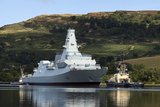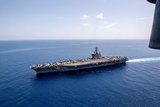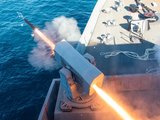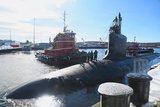UK to boost amphibious capability with Future Littoral Strike Ships
Not content with a raft of global military deployments, new bases and commitments to existing defence programmes, the UK Secretary of State for Defence, Gavin Williamson, has announced an intention to establish two ‘littoral strike groups’ with a focus on the Middle East and Asia-Pacific regions.
Delivering a speech at the Royal United Services Institute (RUSI) on 11 February, Williamson said that concept work was underway for the Future Littoral Strike Ships (FLSS), although further details and the costs involved were not divulged.
However, it seems likely that such platforms would be based on existing commercial designs or ships, similar
Already have an account? Log in
Want to keep reading this article?
More from Naval Warfare
-
![US Navy to develop an undersea networking capability to support UUV operations]()
US Navy to develop an undersea networking capability to support UUV operations
The NEREUS project aims to enhance and expand the US Navy’s existing communications systems, enabling crewed/uncrewed seabed and subsurface missions.
-
![How the Hedge Strategy will impact the US Navy’s future capabilities]()
How the Hedge Strategy will impact the US Navy’s future capabilities
The US Navy Hedge Strategy is intended to provide a lethal, modular and cost-effective fleet while accepting Washington’s fiscal and industrial constraints.
-
![US Navy and Raytheon explore additional applications for Mk 58 CRAW torpedo]()
US Navy and Raytheon explore additional applications for Mk 58 CRAW torpedo
Designed as an anti-torpedo and anti-submarine capability, the USN and RTX foresee the Compact Rapid Attack Weapon’s potential for deployment from surface ships and aerial and uncrewed platforms.





















